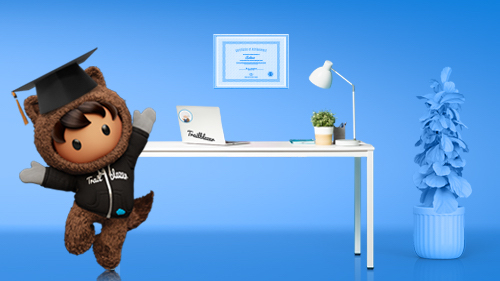
Get your FREE 30-day trial.
Please complete all fields.
As we move into the Fourth Industrial Revolution, most of us will need to learn new skills to advance our careers. Of course, technology skills are important. Obviously, we must continue to learn the latest applications to remain relevant. But focusing only on hard skills, such as a specific computer programming language, leaves us lopsided or potentially vulnerable.
As someone who’s worked as a tech writer at Salesforce for nearly 15 years, I’ve observed certain skills that have made some employees more impactful than others. Unlike hard skills — such as writing, accounting, or web design — soft skills are harder to define. They’re often perceived as abstract or behavioral. But I’ve seen how developing soft skills have worked in an employee's favor at Salesforce.
Those who focus on developing their behavioral skills appear to influence more people and inspire change across teams more often than those who don’t. Also, as someone in a leadership position, I’ve seen more interesting projects land in the hands of those who’ve improved their soft skills over time (myself included — through much trial and error).
Public speaking and engaging others
A lot of people think public speaking or being personally engaging is simply talking. But how often have you sat in a meeting, zoning out on your mobile phone because the speaker couldn’t hold your attention or mumbled, uh, like, or you know — after every word?
Now think about someone at your company who engages you during meetings and captivates a room when they speak. Do you or others look forward to working with that person? Does that person work on more interesting projects or receive more resources for their team? Most likely, yes.
Luckily, few people are born charismatic or great public speakers. If you ask those who speak well in front of an audience how they do it, you’ll often find that they’ve cultivated this skill with classes, coaches, endless practice, or Toastmasters — a nonprofit educational organization that operates clubs that promote public speaking skills.
Empathy and listening
Being able to put yourself in someone else's shoes and to understand where they're coming from is a valuable skill to have because it's easy to get defensive. Empathetic people listen more than they talk. They appear focused on other people’s concerns and ask questions to better understand others or their situation. Think of how you’ve felt in the company of coworkers who are great listeners. Now think of colleagues who frequently interrupt you or dominate meetings with their opinions.
Who would you rather work with? Would you prefer to have a teammate who is present in the moment or impatient until it’s their turn to share an experience? Generally, empathetic people have learned to restrain themselves during conversations; improve their deep listening skills; or use mindfulness apps, such as Headspace, to better appreciate silence and other people’s perspectives.
Openness to feedback
Feedback is invaluable. It may be the most important information you receive or give to affect change in your organization. I once received some difficult feedback about my behavior in the workplace — behavior I hadn't even been aware of — that helped me see a side of myself that needed improvement.
Had I not received the feedback or ignored it, I’d still be suffering through some workplace confusion and frustration. The feedback was gold. Over the years, I’ve seen managers at Salesforce incorporate feedback into their leadership styles, and it’s fostered more compassion, motivation, and transparency.
Who would you rather work for? Someone who eagerly asks for and listens to feedback or someone who gets defensive or evasive when receiving feedback? Online training and books such as Crucial Conversations have helped numerous Salesforce employees in their professional and personal lives.
Inclusion for success
Most people never intend to exclude others in the workplace, but it can easily happen when it's not top-of-mind. Subconscious behaviors have unintended consequences. Underrepresented people can continue to feel unwelcome without company efforts to change the status quo.
Ohana groups (employee resource groups) at Salesforce lead the way to include more people and cultivate the business value of equality. Employee resource groups include Latinoforce, Outforce, Faithforce, Vetforce, and more, reflect the communities in which we live, work, and serve. Data shows diverse companies are more innovative and better positioned to succeed.
In this report, employees who say they are able to be their authentic self at work are nearly three times (2.8x) more likely to say they are proud to work for their company — and nearly four-times (4.4x) more likely to say they are empowered to perform their best work. Through a variety of Ohana events and online learning with Trailhead, it’s easier to find ways to improve inclusion skills, which makes businesses and employees more successful.
Next steps
Like my colleagues on the Content and Communications Experience team (CCX), I need to know hard skills like XML and Salesforce administration to succeed. To write about APIs, I must understand how to code. To create UI text, graphics, videos, pop-ups, walkthroughs, Trailhead modules, interactive tutorials, and on-screen mechanisms that provide clarity or instructions to customers, I must continue to learn new technical skills. But those skills seem easier to learn because they’re clear and have guidelines.
It’s the soft skills that are difficult. They’re ambiguous and specific to each person and workplace. They require introspection, an open mind, and figuring out how behaviors inspire or intimidate others. Self-reflection isn’t always easy. But the sooner we reflect, the more well-rounded and impactful we can become. Which soft skills will you work on?